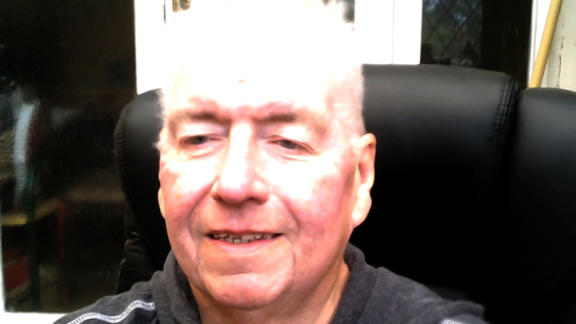NHS Reset: What we've learned about hospital discharge amid the COVID-19 pandemic

In this blog, part of a series of comment pieces from NHS Confederation members and partners, David Liley shares Healthwatch Brighton and Hove’s hospital discharge lessons learnt from their rapid response to COVID-19.
Restore and recovery in health and social care should be all about learning lessons from the COVID-19 response. There have been innovations and changes in service delivery over a short period that might otherwise have taken years. A shining example of that has been the response of the voluntary and community sector and local Healthwatch. In collaboration with the NHS and local councils, we found ways to work at speed, overcome red tape, and get help to people just when and where they needed it. It is crucial that in resetting the NHS, we do not lose the independence and co-production that thrives outside statutory provision.
Healthwatch Brighton and Hove provides the Hospital Discharge Wellbeing Project in partnership with Brighton and Hove City Council, Brighton and Sussex University Hospitals NHS Trust and the Sussex Health and Care Partnership (the integrated care system).
The project started on the 7 April 2020 as part of the response to COVID-19. The service is offered to anyone discharged from hospital, not just those with the virus or virus-related conditions. By the end of May 2020, a total of 350 people had been referred and we now have 60-80 referrals a week. People are phoned by Healthwatch trained volunteers within a few days of discharge from hospital, usually in the first week. We are not a care provider organisation, so our role is to signpost and assist people to find the help they need.
Forty-three per cent of people need some additional support and 35 per cent have issues or questions related to their hospital discharge. Most discharges are handled well, and in the 350 referrals, we have had only three discharges where significant, but avoidable, errors emerged. These were all resolved promptly and in a spirit of putting the patient first.
Lessons we have learnt so far:
- We cannot expect discharge planning to anticipate all the needs and issues people will face when they get home. Personal circumstances can change quickly, and 50 per cent of the people referred to Healthwatch have pre-existing long-term conditions, 35 per cent have unpaid caring responsibilities and 16 per cent had been identified by the NHS as extremely vulnerable to COVID-19.
- A quick and friendly phone call to signpost people to additional support and advice can prevent more complex and costly interventions, including hospital re-admission.
- Healthwatch trained volunteers successfully engaged 98 per cent of the people they reached by phone. This makes it a low-cost solution with independent assurance built into the discharge process.
- Sixty-nine per cent of people told us the hospital had not advised them that Healthwatch volunteers would be calling them after they got home. On discharge, the NHS needs to look closely at the advice and information provided to patients and their families. There are too many instances of this failing to reach a good standard.
- Hospital discharge systems can be improved:
- better information exchange with social care and community support providers
- better information gathering, recording and data-transfer systems are needed within hospitals
- more reliable and up-to-date information on where, and how, patients can get support once they are home. -
Six to 10 per cent of people referred to Healthwatch after hospital discharge had suicide attempts, self-harm or suicidal ideation, as part of their presentation. We need a better understanding of that number and plans for emotional and mental health support dealing with that aspect of the impact of the virus.
This Healthwatch Brighton and Hove project has demonstrated that where there is a willingness, hospitals, social care and volunteers can act together quickly to help local people. This project was funded for six months as part to the COVID-19 response. Commissioners should consider whether this kind of intervention should become routine, ‘business as usual’. We are now extending the service to help check on people using home care services, particularly those whose home care packages have reduced over the COVID-19 period.
The experience in Brighton and Hove, and across Sussex, has been that local Healthwatch brings an independent voice and the voluntary and community sector brings a close relationship and intimate understanding of vulnerable communities that is unique. When we combine those assets with the resources and public confidence in the NHS and social care, we have a powerful partnership to tackle the restore and recovery challenges of the future.
We challenge the NHS and social care to realise, as never before, that they are not always the best people to signpost, advise, and deliver services. They must hear and act on public and patient voices as they express their preferences and expectations for the future of health and care.
David Liley is chief officer of Healthwatch Brighton and Hove. Follow them on Twitter @HealthwatchBH



